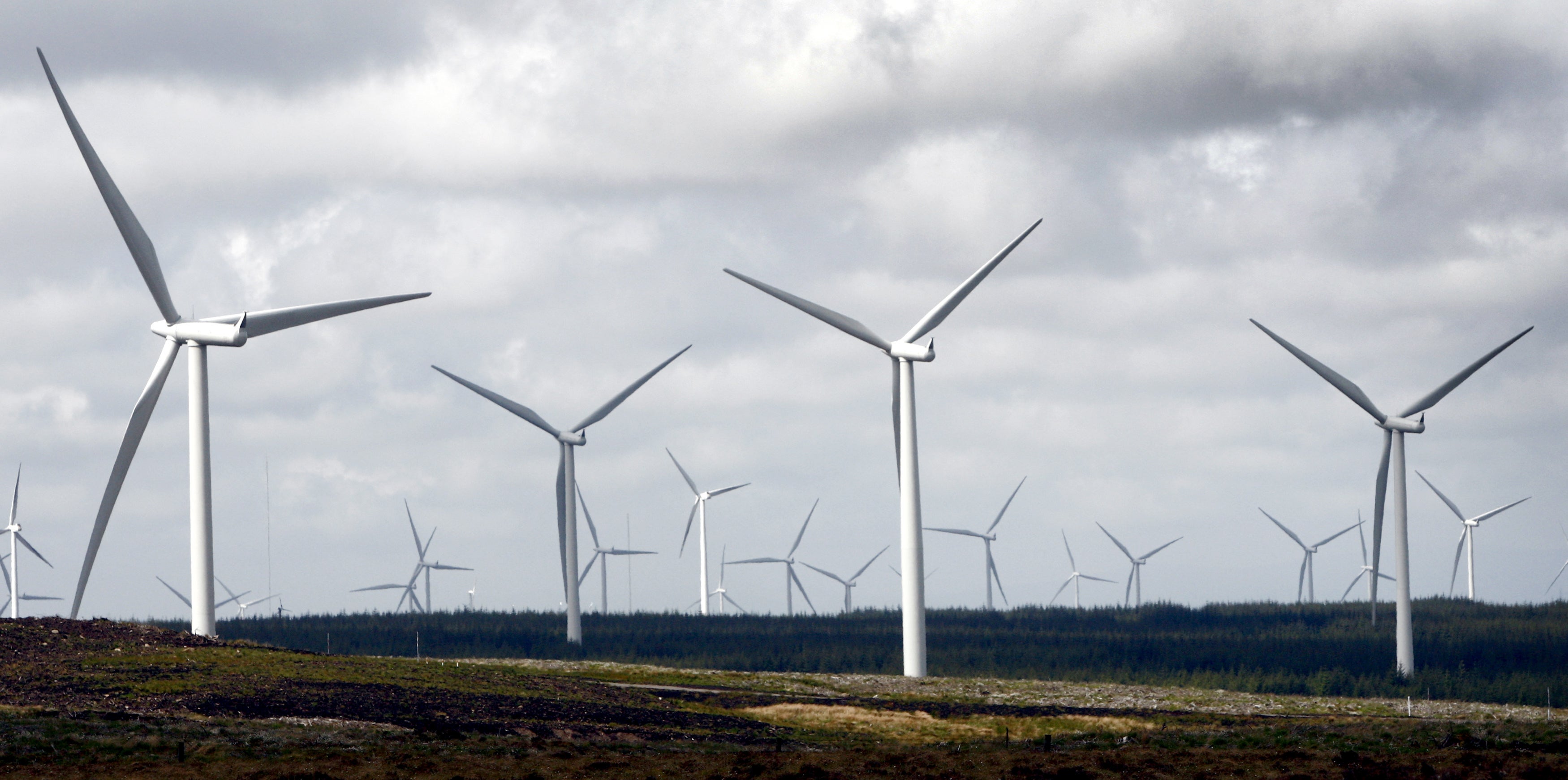Slowdown in onshore wind rollout ‘could add £125 to bills’
Onshore wind is the cheapest form of renewable energy, but faces opposition from some backbench MPs

Your support helps us to tell the story
From reproductive rights to climate change to Big Tech, The Independent is on the ground when the story is developing. Whether it's investigating the financials of Elon Musk's pro-Trump PAC or producing our latest documentary, 'The A Word', which shines a light on the American women fighting for reproductive rights, we know how important it is to parse out the facts from the messaging.
At such a critical moment in US history, we need reporters on the ground. Your donation allows us to keep sending journalists to speak to both sides of the story.
The Independent is trusted by Americans across the entire political spectrum. And unlike many other quality news outlets, we choose not to lock Americans out of our reporting and analysis with paywalls. We believe quality journalism should be available to everyone, paid for by those who can afford it.
Your support makes all the difference.Moves to slow the expansion of onshore wind farms in Britain could add as much as £125 to each household’s energy bills in the middle of next decade, new analysis has suggested.
The Energy and Climate Change Intelligence Unit said that if wind farms are not built onshore a repeat of the current gas crisis in 2035 would add about £10 billion a year to bills.
There are currently 14 gigawatts of onshore wind farms in the UK, which is set to rise to 20GW. However if it stops there it could lead to an extra £50 on each household’s bill by 2030.
These indicative figures show that the price of not investing in onshore wind is high
“It’s difficult to predict exactly what the power system of the future might look like, and hopefully gas will be less dominant over wholesale prices, but these indicative figures show that the price of not investing in onshore wind is high,” said Dr Simon Cran-McGreehin, head of analysis at ECIU.
According to reports in the run-up to the Government’s energy strategy, which was released earlier this month, ministers were considering plans to reach 45GW by 2035.
Onshore wind is the cheapest form of renewable energy that it is possible to build in the UK.
But reported opposition from backbenchers meant the Government dropped the plans. Opponents of onshore wind farms say they are ugly and ruin countryside landscapes.
“If the build-out of onshore wind is slowed again, in the event of another gas crisis those MPs falsely claiming turbines are unpopular could have to explain to their constituents why they are paying an additional £125 on their bills,” Dr Cran-McGreehin said.
“Onshore wind is one of the most popular energy technologies with 80% of the public backing it, rising to 87% where households get cheaper bills from a local wind farm.”
Ed Miliband, Labour’s shadow climate change and net zero secretary, said: “Families across the country are paying the price for over a decade of Conservative energy policy failure.
“Britain deserves better than this Government’s plans which offer no help now and no help this decade for families facing the cost-of-living crisis.
“Labour would deliver the green energy sprint that Britain needs for lower bills and energy security.”